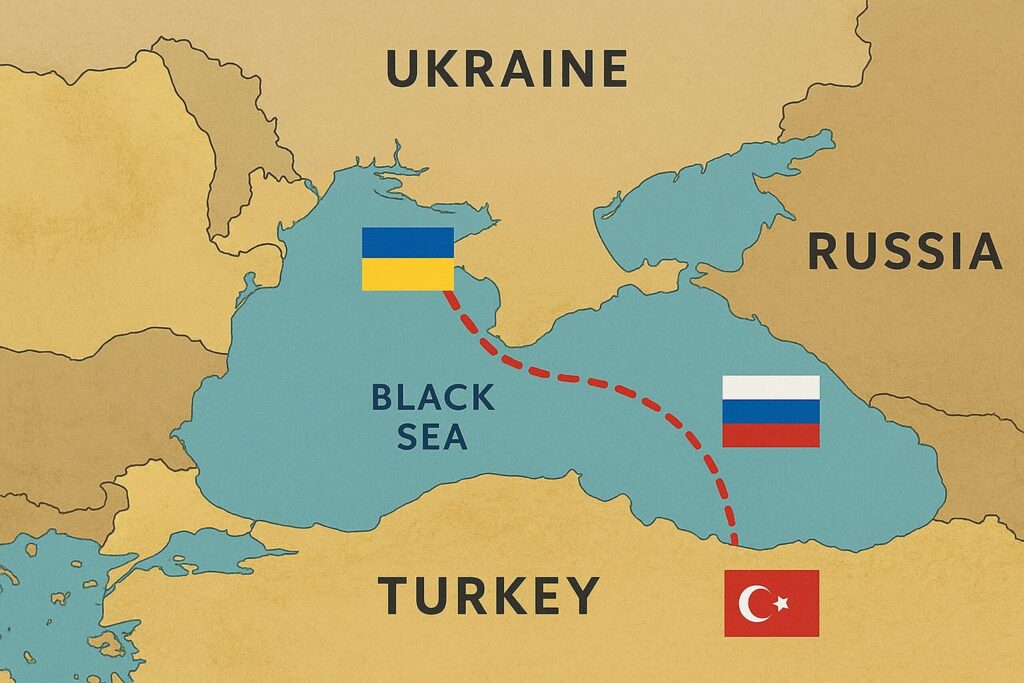In a world where geopolitical interests pull the strings, international conflicts emerge or worsen, challenging the global order. In this sensitive context, mediation appears as a preferred tool to resolve disputes between two or more parties. Seemingly neutral, the mediator establishes dialogue, helps the parties move closer together, and encourages compromises to reach a mutually beneficial solution. As Maria Zhomartkyzy (2023)points out: “One of the key features of mediation is its flexibility and adaptability to different types of conflicts. It can be used in territorial disputes, economic disagreements, issues of national identity, as well as in broader contexts such as religious or ethnic conflicts. Mediation is not limited to ending hostilities; it also lays the foundation for lasting peace and cooperation.” However, mediation is not without its limits: a party may unilaterally withdraw from negotiations, and the agreements reached often have no legally binding value. This was the case in Venezuela in July 2024, when outgoing President Nicolás Maduro rejected any mediation proposal in the post-election crisis. Another example is China’s mediation between Iran and Saudi Arabia, weakened by accusations from Riyadh that Tehran had failed to honor its commitments. As Maria Zhomartkyzy reminds us in her article that “the role of mediation in international conflict resolution, mediation in international conflicts requires a significant investment of time, resources, and effort.” Thus, in the face of proliferating mediation efforts, one question arises: what are the true motivations of external actors?
Before mediation: positions and diplomatic condemnations
Whenever a conflict breaks out, diplomatic stances multiply—often under the guise of international or humanitarian law. But upon closer inspection, each position serves specific interests.
Take the Israeli–Palestinian conflict: India, for example, adopts a strategic neutrality. While it has a historic solidarity with Palestine, its relations with Israel have strengthened, particularly in security and energy. Thus, New Delhi condemns Hamas but remains cautious about Israel’s reprisals in Gaza, as shown by its repeated abstentions at the UN. Chile, home to one of the world’s largest Palestinian communities, takes a position strongly in favor of Palestine. In contrast, Guatemala and El Salvador support Israel, due to their closeness to Washington, past military cooperation, and bilateral investment treaties. Argentina also sides with Israel—a choice rooted in history: in 1992 and 1994, attacks targeting Israel took place on its soil, causing numerous casualties.
Mediation and hidden interests
Some countries are content with diplomatic stances; others take on the role of mediator—often for reasons beyond simply promoting peace.
Turkey: between Moscow and Kiev
Turkey maintains significant economic ties with Russia: energy (Akkuyu nuclear power plant, TurkStream gas pipeline), Russian tourism, trade (11% of Turkish trade in 2022). With Ukraine, it benefits from wheat imports, tourism, and close military cooperation. By positioning itself as a mediator in the Russia–Ukraine war, Ankara aims to preserve these interests while boosting its international prestige. For instance, the July 2022 agreement on exporting Ukrainian grain via the Black Sea, presented as an act of solidarity toward African countries, also allowed Turkey to benefit from part of the exports.

China: ambitions in the Middle East
Historically close to Iran, Beijing has shifted its diplomacy to balance its ties with Gulf states, particularly Saudi Arabia and the United Arab Emirates (UAE). This has resulted in increased economic exchanges between China and Gulf countries. According to Chinese Foreign Minister Qin Gang, China’s mediation between Riyadh and Tehran officially aims to ensure regional stability and protect it from outside interference. But it also serves a strategic objective: securing the Belt and Road Initiative routes through the Middle East and reducing US influence in the region. The World Bank notes that the Belt and Road Initiative could significantly improve trade, foreign investment, and living conditions in participating countries. Indeed, in pursuit of a new world order less favorable to US influence, China harbours growing ambitions in the Middle East. By positioning itself as a guarantor of peace in the region, China aims to enhance its influence. In his program Geopolitics in Asia, Jean-Yves Heurtebise argues that this would “show that Washington is a second-tier power, leading to the establishment of a parallel world order not dominated by the West and imperialism.” Similarly, Terra Bellum (France’s leading defense and geopolitics magazine) explains that “by initiating dialogue between two major Middle Eastern powers, Chinese delegations have a free hand to expand their activities across the Persian Gulf for their Belt and Road Initiative”.
Qatar: soft power as a lifeline
Karim Sader, a political scientist specializing in the Middle East, describes Qatar as “a tiny country of just over 11,000 square kilometers, with geopolitical fragility as it is wedged between Saudi Arabia and Iran, the region’s great powers.” Nevertheless, Qatar engages in multiple mediation efforts, notably in the Israeli–Palestinian conflict. A source close to the Qatari government told Francesca Cicardi that Doha’s priority is “to end this war, the massacre of innocent civilians, and to find a negotiated solution to secure the release of hostages.” In reality, as Chelkha Marwa, research assistant at CERMAM, points out, behind its image as a ‘promoter of peace’, Doha compensates for its military vulnerability with soft power, strengthening its diplomatic weight and strategic alliances. According to Karim Sader, apart from its financial power, soft power is Qatar’s only way to exist. That is why, in his view, “it has mastered and sharpened its mediation skills by trying to talk to everyone, which has given it room to maneuver on the international stage.” Yves Bourdillon confirms that “forced to remain a military and demographic dwarf, with only 300,000 inhabitants and surrounded by unscrupulous regional powers, Qatar also buys itself a life insurance policy via very powerful Western allies.”
United States: transparency of interest
US diplomacy is more open about its motivations. In the crisis between the Democratic Republic of Congo (DR Congo) and Rwanda, Washington facilitated a peace agreement on 27 June 2025, while securing better access to Congo’s strategic minerals (copper, cobalt, lithium). Yet, US Secretary of State Marco Rubio declared that the goal is “to end wars or save lives. It’s about enabling people to live.” Interviewed by France 24, Thierry Vircoulon observed that “the Americans are indeed interested in this Congolese mining sector, which is 70% dominated by Chinese interests” and that “they want to shake up Beijing’s influence and gain control over some of the mining assets in the DRC.” BBC News reported that the deal includes “reviving investments in infrastructure, mineral resources (copper, cobalt, lithium), and reforming the Congolese security sector, rehabilitation of Route Nationale 2 (RN2) and the Goma–Bukavu axis via the US Development Finance Corporation (DFC).” The same logic applies in the Russia–Ukraine conflict: the proposal to take control of the Zaporizhzhia nuclear plant and interest in Ukraine’s mineral resources shows that peace goes hand in hand with economic opportunities. Finally, mediation between Armenia and Azerbaijan led to the creation of a strategic corridor (‘Trump Road’), enabling the United States to strengthen its influence in a region strategically located between Turkey, Iran, and Russia, and rich in hydrocarbons.
Conclusion: a two-faced diplomacy
Behind humanitarian rhetoric, international diplomacy resembles a puzzle whose pieces are moved by interests. China, the United States, and Qatar illustrate three approaches: Beijing and Washington seek to shape a world order to their advantage, while Doha, a geopolitical ‘David’, uses mediation as a survival strategy. As noble as it may seem, mediation is rarely free from ulterior motives. In this game, peace is as much an end as it is a means.


